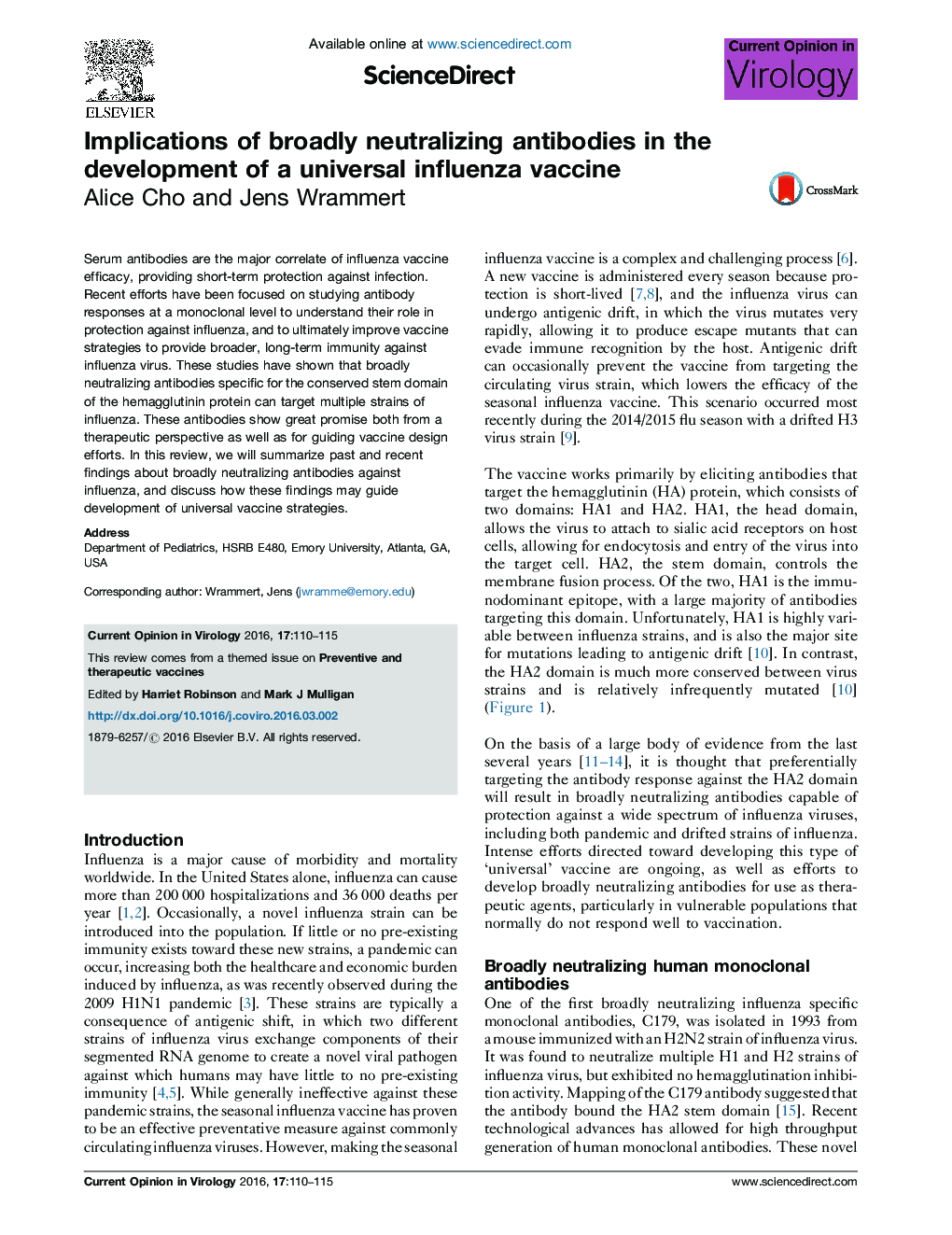| Article ID | Journal | Published Year | Pages | File Type |
|---|---|---|---|---|
| 5806628 | Current Opinion in Virology | 2016 | 6 Pages |
Abstract
Serum antibodies are the major correlate of influenza vaccine efficacy, providing short-term protection against infection. Recent efforts have been focused on studying antibody responses at a monoclonal level to understand their role in protection against influenza, and to ultimately improve vaccine strategies to provide broader, long-term immunity against influenza virus. These studies have shown that broadly neutralizing antibodies specific for the conserved stem domain of the hemagglutinin protein can target multiple strains of influenza. These antibodies show great promise both from a therapeutic perspective as well as for guiding vaccine design efforts. In this review, we will summarize past and recent findings about broadly neutralizing antibodies against influenza, and discuss how these findings may guide development of universal vaccine strategies.
Related Topics
Life Sciences
Immunology and Microbiology
Virology
Authors
Alice Cho, Jens Wrammert,
